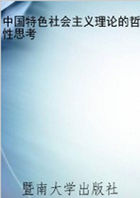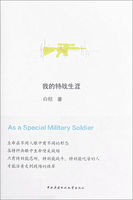That some kind of Taxes and Publick Levies, may rather increase than diminish the Wealth of the Kingdom.
IF the Money or other Effects, levyed from the People by way of Tax, were destroyed and annihilated; then `tis clear, that such Levies would diminish the Commonwealth:
Or if the same were exported out of the Kingdom without any return at all, then the case would be also the same or worse': But if what is levyed as aforesaid, be only transferred from one hand to another, then we are only to consider whether the said Money or Commodities, are taken from an improving hand, and given to an ill Husband, or vice versa: As for example, suppose that Money by way of Tax, be taken from one who spendeth the same in superfluous eating and drinking; and delivered to another who em- ployeth the same, in improving of Land; in Fishing, in working of Mines, in Manufacture, &c. It is manifest, that such Tax is an advantage to the State whereof the said different Persons are Members: Nay, if Money be taken from him, who spendeth the same as aforesaid upon eating and drinking, or any other perishing Commodity; and the same transferr'd to one that bestoweth it on Cloaths; I say, that even in this case, the Commonwealth hath some little advantage; because Cloaths do not altogether perish so soon as Meats and Drinks: But if the same be spent in Furniture of Houses, the advantage is yet a little more; if in Building of Houses, yet more; if in improving of Lands; working of Mines, Fishing, &c. yet more; but most of all, in bringing Gold and Silver into the Country: Because those things are not only not perishable, but are esteemed for Wealth at all times, and every where: Whereas other Commodities which are perishable, or whose value depends upon the Fashion; or which are contingently scarce and plentiful, are wealth, but pro hic & nunc , as shall be elsewhere said In the next place if the People of any Country, who have not already a full employment, should be enjoyned or Taxed to work upon such Commodities as are Imported from abroad;
I say, that such a Tax, also doth improve the Commonwealth.
Moreover, if Persons who live by begging, cheating, stealing, gaming, borrowing without intention of restoring; who by those ways do get from the credulous and careless, more than is sufficient for the subsistence of such Persons I say, that although the State should have no present employment for such Persons, and consequently should be forced to bear the whole charge of their livelyhood; yet it were more for the publick profit to give all such Persons, a regular and competent allowance by Publick Tax; than to suffer them to spend extravagantly, at the only charge of careless, credulous, and good natured People: And to expose the Commonwealth to the loss of so many able Men, whose lives are taken away, for the crimes which ill Discipline doth occasion.
On the contrary, If the Stocks of laborious and ingenious Men, who are not only beautifying the Country where they live by elegant Dyet, Apparrel, Furniture, Rousing, pleasant Gardens, Orchards, and Publick Edifices, &c. But are also increasing the Gold, Silver, and Jewels of the Country by Trade and Arms; I say, if the Stock of these Men should be diminished by a Tax, and transferred to such as do nothing at all, but eat and drink, sing, play, and dance; nay to such as study the Metaphysicks, or other needless Speculation; or else employ themselves in any other way, which produce no material thing, or things of real use and value in the Com- monwealth: In this case, the Wealth of the Publick will be diminished: Otherwise than as such exercises, are recreations and refreshments of the mind; and which being moderately used, do qualifie and dispose Men to what in it self is more considerable.
Wherefore upon the whole matter, to know whether a Tax will do good or harm: The State of the People, and their employments, must be well known; (that is to say,) what part of the People are unfit for Labour by their Infancy or Impotency; and also what part are exempt from the same, by reason of their Wealth, Function, or Dignities; or by reason of their charge and employments; otherwise than in governing, directing and preserving those, who are appointed to Labour and Arts.
2. In the next place computation must be made, what part of those who are fit for Labour and Arts as aforesaid, are able to perform the work of the Nation in its present State and Measure.
3. It is to be considered, whether the remainder can make all or any part of those Commodities, which are Imported from abroad; which of them, and how much in particular: The remainder of which sort of People (if any be) may safely and without possible prejudice to the Com- monwealth, be employed in Arts and Exercises of pleasure and ornament; the greatest whereof is the Improvement of natural knowledge.
Having thus in general illustrated this point, which I think needs no other proof but illustration; I come next to intimate that no part of Europe hath paid so much by way of Tax, and publick contribution, as Holland and Zealand for this last 100 Years; and yet no Country hath in the same time, increased their Wealth comparably to them: And it is manifest they have followed the general considerations above-mentioned; for they Tax Meats and Drinks most heavily of all; to restrain the excessive expence of those things, which 24 hours doth (as to the use of Man,) wholly annihilate; and they are more favourable to Commodities of greater duration.
Nor do they Tax according to what Men gain, but in extraordinary cases; but always according to what Men spend: And most of all, according to what they spend needlesly, and without prospect of return. Upon which grounds, their Customs upon Goods Imported and Exported, are generally low; as if they intended by them, only to keep an account of their Foreign Trade; and to retaliate upon their Neighbour States, the prejudices done them, by their Prohibitions and Impositions.













![[苏]合作教育学派教育基本原理与论著选读](http://cdn.houhaiwang.com/images/book/2020/02/18/214411238.jpg)

